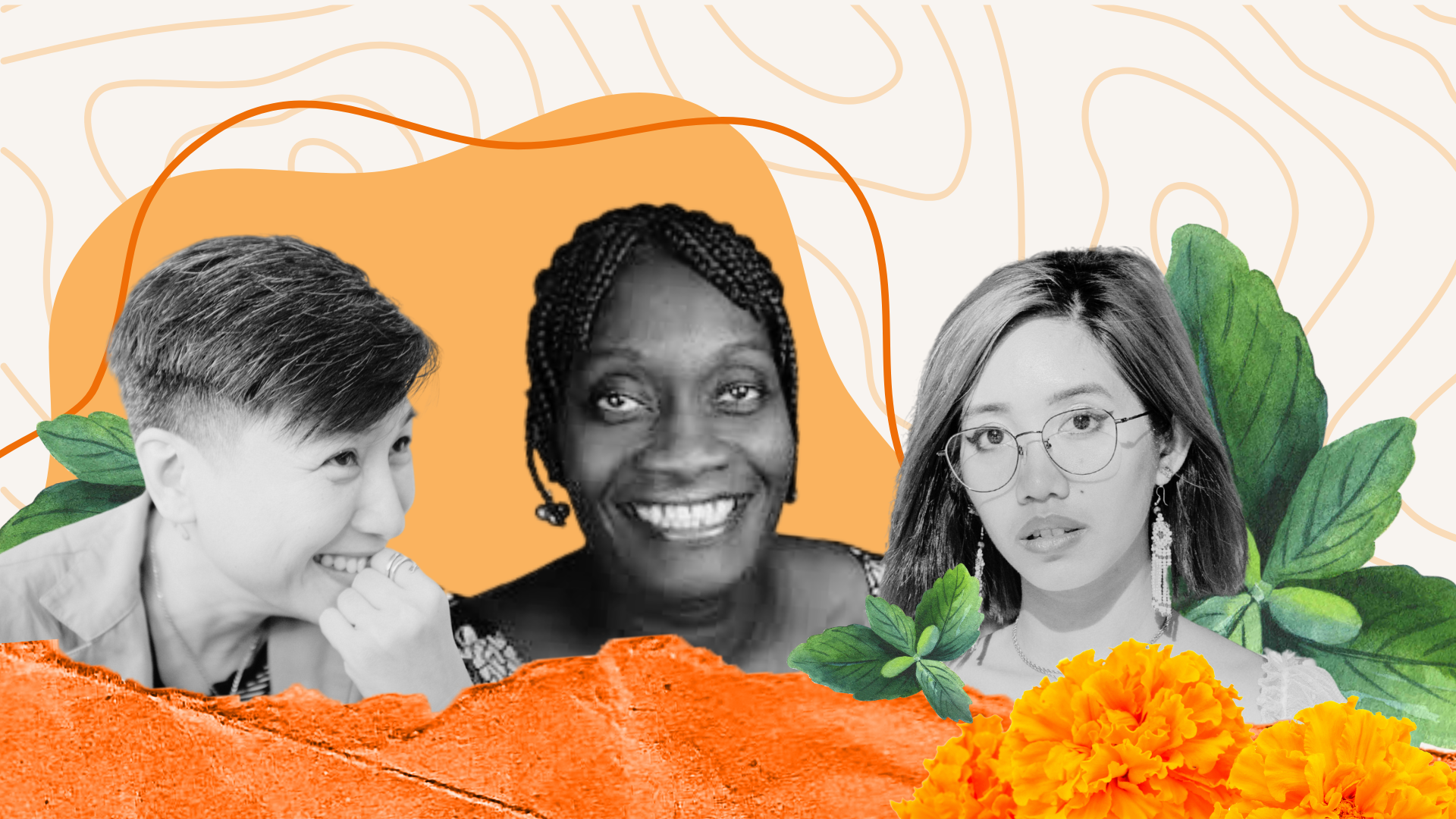“I believe in the power of us taking care of each other”: In conversation with Mitzi Jonelle Tan, Jac sm Kee and Theo Sowa

Collective resilience is crucial in challenging times like ours, yet it's rarely nurtured. How can we build this capacity together?
“I believe in the power of us taking care of each other,” Theo Sowa, feminist advisor and Co-Chair of the Equality Fund, told us.
Imagine if, instead of being encouraged to go off and take your rest when you’re feeling burnt out, you could rest with your community, wonders Mitzi Jonelle Tan, a climate justice activist and Global Coordinator of the Fossil Fuel Non-Proliferation Treaty Initiative.
And don’t forget play! That's advice from Jac sm Kee, feminist tech and social justice activist and co-founder of the Numun Fund. “Play creates an imaginative way of engaging with really difficult things, and it’s also quite healing. It allows you to be surprised and be disarmed."
So, what does all of this actually look like?
In May 2025, we sat down with Theo, Mitzi and Jac to find out what it means to thrive with intention together.
Traversing generations, movements and countries, Theo, Mitzi and Jac share rich insights into the collective joy, imagination and rest we can find when we reclaim our humanity and our histories. With concrete practices and inspiring guidance about the times we’re living in, they weave their wisdom together in a way that’s relevant for rights and justice leaders around the world.
👇🏽 Watch the recording, or read the highlights below. 👇🏽
Reclaiming our humanity with rest, joy and imagination
“Dreaming together, imagining together, means that we don't let our opponents set the agenda,” affirms Theo. We need to create the world we’ve been dreaming up.
It can be really tiring to feel like the meaning of life is simply to fight something. Even if it’s the injustice of oppression, adds Mitzi. “I need to build spaces that are built on love and bravery and joy. We are brave enough to trust each other. Being alive is dancing in between these spaces, these two opposite directions.”
The importance of rest, joy and imagination as part of our collective care and resilience was something we heard in many forms from Theo, Mitzi and Jac. With everything we need to fight or build, we often forget to take the time to be human and whole. Rest might not always feel like a revolution, but it is often something we need to reclaim our humanity and our connections to ourselves and one another.
For Mitzi, this realization came while spending time with farmers on the front lines of climate change. It reminded her that there are necessary periods of rest. “Sometimes you just have to wait for the plants to come up. In the middle of the afternoon, you sing together. You tell stories to each other.”
Jac sm Kee tries to spend the first 15 minutes of every morning in a non-verbal space, maybe playing some ukelele. They also prioritize spending time with colleagues to learn something new for the pure joy of “nerding out” together. For us grown ups, this is a kind of play—something we don’t often allow ourselves when the stakes feel perpetually high.
“Why are we doing this all if it isn’t about joyful being as humans?” asks Theo.
The resilience hidden in our histories
It can feel like an exhale to remember that the current moment is not everything. This moment is actually part of a transition to something else … to the future Theo was reminding us to dream up together. Locating ourselves in the larger trajectory of history can open up spaciousness, wisdom and power.
“The printing press changed who had access to knowledge, and who had access to authority and truth,” Jac reminds us. “Then that changed everything in terms of the monopolization of power by the state and the church. So now, digital technology infrastructure has shifted this again in a fundamental way.” And it will continue to shift, despite the control and influence wielded by tech giants in the current moment.
“Power is not fixed. Systems are shiftable,” notes Jac, who co-created the Feminist Principles for the Internet.
And despite what our strategies insist, progress is not linear.
Theo agrees that there are lessons in our histories. On one hand, she says, “we must honour and acknowledge our fear and grief.” But we must also remember that it is because movements have been making progress on their goals that we are experiencing a global wave of anti-rights pushback. So, even as generations were lost to South Africa’s AIDS crisis, she explains in one example, “collective resilience means that even though we suffer losses, we won’t lose.”
“It’s all connected,” insists Mitzi. “Losing connection to nature means losing connection to each other and history. I see time as a spiral, like the Fibonacci sequence in seashells. The spiral isn’t two-dimensional. So, this moment in history will have something that resonates with another moment of history, and another. It seems like we're doing the same thing, that we’re going backward. But no, we’re progressing. It’s a different level with similar themes.”
As one participant said as we wrapped up the session, “It's about trusting our ways and building new ways that are rooted in our own ancestral collective knowledge.”
Ready to seed a new practice to support your work in the world? Check out our Collective Resilience Community Garden. We chose a garden metaphor for our collection of resilience practices because our rootedness in place, time and nature is the fertile ground that nourishes a mindset of interconnection and interdependence.
You can explore all the resources for Spring 2025 conversation series, Reimagining Resilience: Sustaining our Mission in a Changing World.
May 29, 2025

